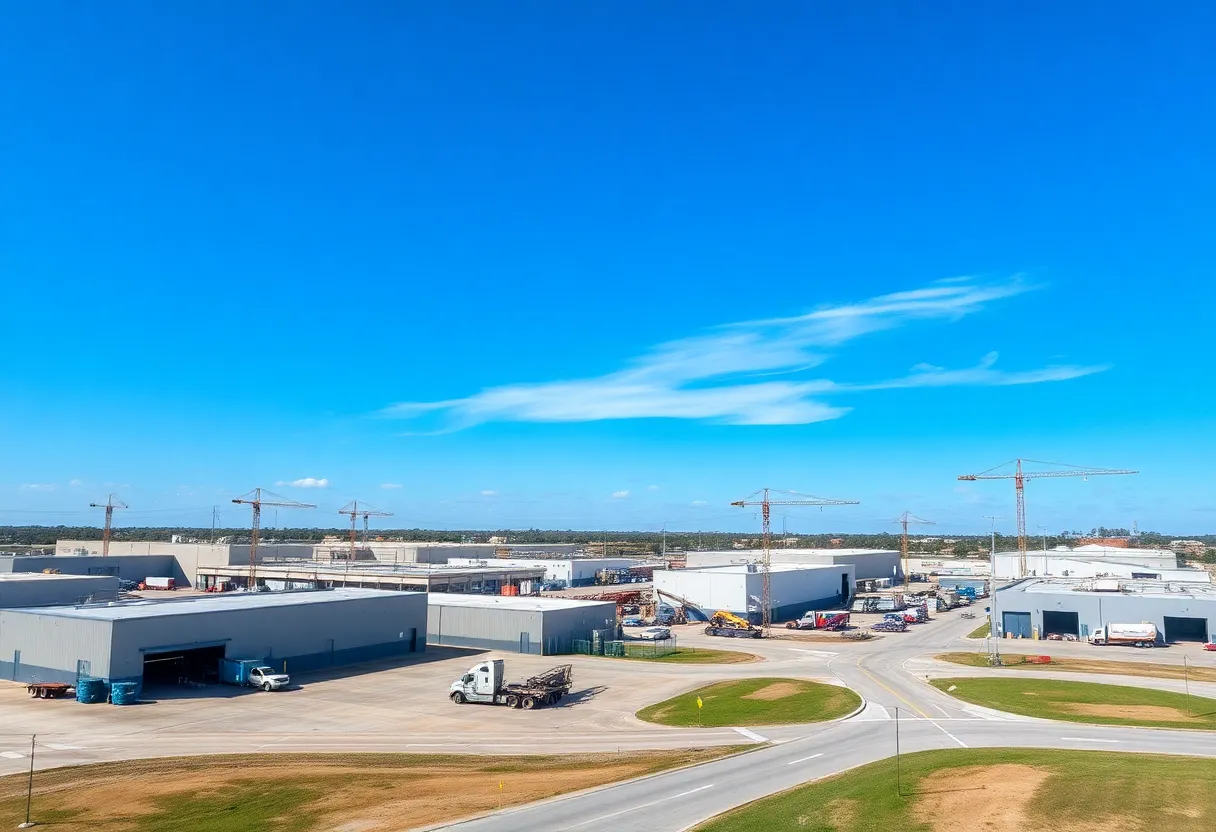News Summary
The industrial market in Jacksonville has started to cool down in early 2025, attributed to tariff uncertainties and other market challenges. Reports from major real estate firms indicate a decline in leasing activity, fluctuating vacancy rates, and a drop in average rents. Although vacancy rates slightly decreased to 6.67%, the decline in new leases and a longer lease-up period for new constructions suggest a cautious approach among businesses. Despite these challenges, Jacksonville’s strategic location continues to attract regional businesses, maintaining a strong interest in industrial spaces.
Jacksonville – The industrial market in Jacksonville showed signs of cooling in the first quarter of 2025, primarily due to the uncertainty surrounding prospective tariffs and related market challenges. As several real estate firms, including CBRE, Colliers, Cushman & Wakefield, Foundry Commercial, JLL, and NAI Hallmark, reported on the market’s performance, a significant decline in leasing activity became evident.
The average vacancy rate for industrial and warehouse properties in Jacksonville reached 6.67% in Q1 2025, a minor decline from 6.68% at the end of 2024. Despite the slight reduction, this indicates a cooling trend in demand for industrial spaces in the region. Average rents in the industrial sector also dropped, from $9.23 to $8.90 per square foot, reflecting an overall adjustment in market conditions.
During this period, vacancy rates varied significantly across different properties, ranging from 5.4% to 9.7%, and rents fluctuated between $7.84 and $10.84 based on specific measurement criteria. Colliers reported that the optimism seen in the market post-election was tempered by renewed tariff discussions that contributed to this uncertainty, causing delays in leasing decisions.
The lease-up period for newly constructed buildings increased markedly, going from an average of eight months during 2023-2024 to as much as one year for new projects. This trend indicates that businesses are being more cautious amidst a climate of instability, particularly concerning tariff implications. Foundry Commercial noted that concerns surrounding tariff imposition have prompted some businesses to consider relocating operations domestically, while others have put expansion plans on hold owing to cost-related uncertainties.
Despite the difficulties created by international trade policy, demand for industrial spaces in Jacksonville has remained robust, largely supported by local and regional businesses. Notably, companies are increasingly valuing proximity to ports in their relocation strategies, making Jacksonville—especially the Northside submarket—an attractive destination as they move from higher-cost regions in the Northeast and South.
Jacksonville’s logistical advantages, stemming from its strategic location near major waterways, interstate highways, and rail networks, continue to draw interest from new businesses. Although market conditions have shifted, the city’s appeal as a development hub remains strong, buoyed by the lengthy wait times and limited rail access at the Port of Savannah, alongside ample land available for future projects.
According to the latest quarterly data, new leasing activity declined year-over-year; in Q1 2025, 42 leases were recorded, totaling 1.2 million square feet, a drop from 65 leases covering 1.58 million square feet in Q1 2024. The average lease size during this period was approximately 27,816 square feet. Cushman & Wakefield’s report highlighted that the Westside and Northside submarkets accounted for approximately 79% of the total leasing transaction volume during the quarter.
Recent construction activities saw about 1 million square feet of space completed in Q1, with an additional 5.1 million square feet currently under construction. The overall development pipeline in Jacksonville has approximately 6 million square feet expected to be delivered this year, against a demand exceeding 8 million square feet. Interest from new developers in acquiring land signifies potential growth and a stronger second half of the year.
Employment in the logistics sector remains robust, providing 120,200 jobs across Baker, Clay, Duval, Nassau, and St. Johns counties, making up roughly 16% of the total 731,400 private sector jobs in the area. Latest statistics from the Florida Department of Commerce revealed fluctuations in monthly employment data, underscoring the dynamic nature of Jacksonville’s job market amidst evolving industrial challenges.
Deeper Dive: News & Info About This Topic
HERE Resources
Trade War Consequences: Port of Los Angeles Faces Dramatic Slowdown
South Florida’s Real Estate Sector Faces Challenges and Innovations in 2025
Blackstone Acquires Solea at Miami Lakes for $115 Million
Leadership Changes at Colliers in North Florida
China Sends Cautionary Message on US Trade Deals
Polk County: Florida’s Emerging Economic Hub
Miami’s Commercial Real Estate Market Experiences Significant Growth
Trump’s 10% Tariff Triggers Global Market Meltdown
Partnership Aims to Revitalize Jacksonville’s Commercial Properties
Transformation in Davie: Apex Logistics Park Development Secured
Additional Resources
- Jacksonville Daily Record: Northeast Florida Industrial Market Cooling Off
- Wikipedia: Jacksonville
- Cushman & Wakefield: Jacksonville Marketbeats
- Google Search: Jacksonville industrial market
- Colliers: Jacksonville Industrial Market Report Q1 2025
- Encyclopedia Britannica: Jacksonville
- JLL: Industrial Market Statistics & Trends
- Business Wire: Faropoint Completes $105 Million Off-Market Acquisition
Author: STAFF HERE JACKSONVILLE WRITER
The JACKSONVILLE STAFF WRITER represents the experienced team at HEREJacksonville.com, your go-to source for actionable local news and information in Jacksonville, Duval County, and beyond. Specializing in "news you can use," we cover essential topics like product reviews for personal and business needs, local business directories, politics, real estate trends, neighborhood insights, and state news affecting the area—with deep expertise drawn from years of dedicated reporting and strong community input, including local press releases and business updates. We deliver top reporting on high-value events such as the Jacksonville Jazz Festival, Riverside Arts Market, and World of Nations Celebration. Our coverage extends to key organizations like the Jacksonville Chamber of Commerce and JAXUSA Partnership, plus leading businesses in logistics, healthcare, and entertainment that power the local economy such as CSX Corporation, Baptist Health, and VyStar Credit Union. As part of the broader HERE network, including HEREOrlando.com, HEREStPetersburg.com, HERETallahassee.com, and HERETampa.com, we provide comprehensive, credible insights into Florida's dynamic landscape.






